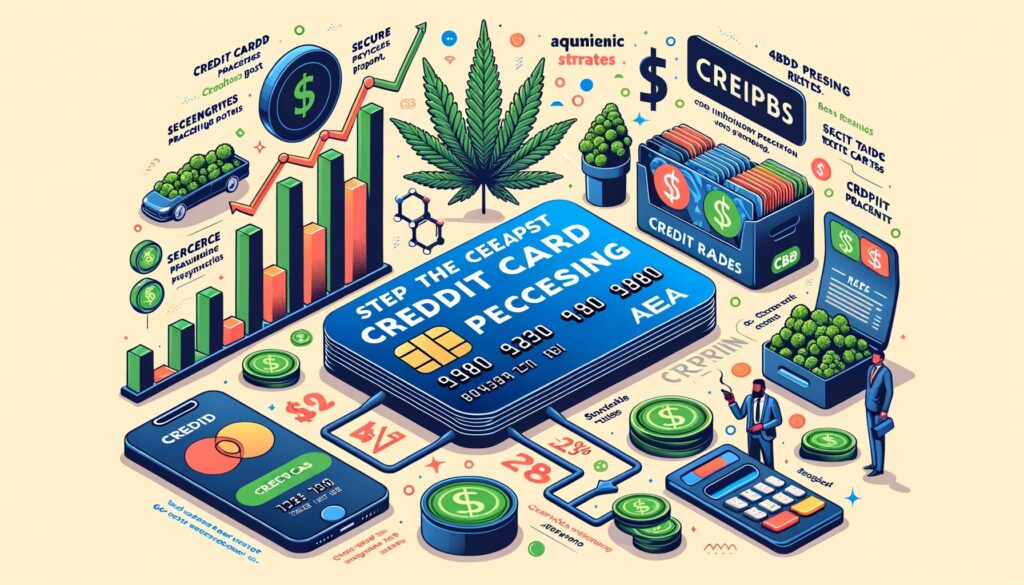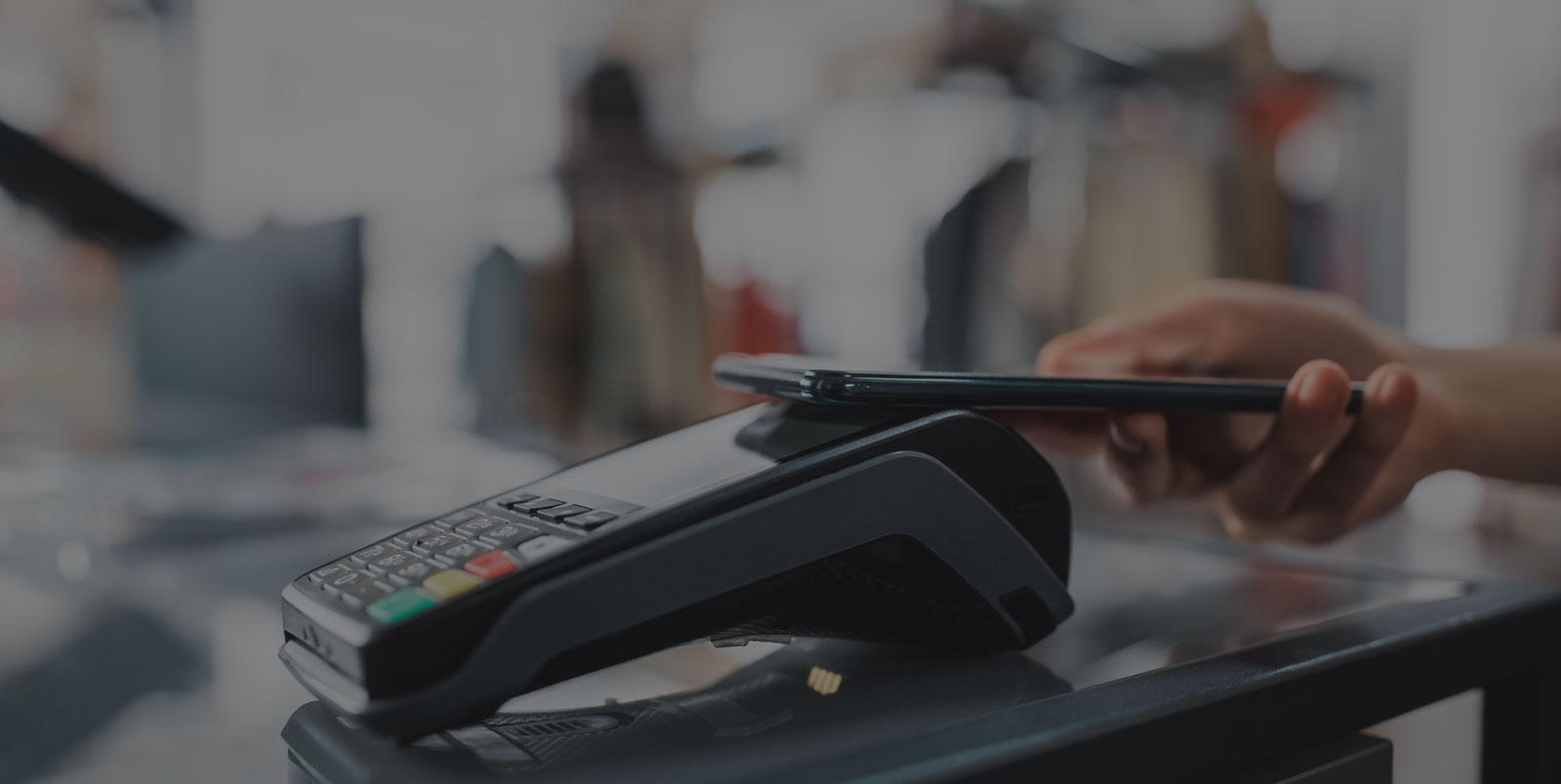
By admin October 14, 2024
As the CBD industry continues to thrive, offering products that cater to health and wellness, businesses in this sector face unique challenges, especially when it comes to payment processing. CBD businesses are often categorized as high-risk due to the legal complexities surrounding cannabis products. As a result, many CBD business owners struggle to find affordable credit card processing options that suit their needs. However, with the right strategies and understanding of the industry, it’s possible to secure the cheapest credit card processing rates for your CBD business.
In this comprehensive guide, we’ll walk you through the factors affecting credit card processing costs for CBD businesses, the steps to secure the best rates, and expert tips to optimize your payment processing strategy.
Understanding Credit Card Processing Rates for CBD Businesses
Before diving into how to reduce your credit card processing rates, it’s important to understand the factors that determine these rates, especially for high-risk industries like CBD.
- Risk Classification: CBD businesses are typically classified as high-risk because of the legal ambiguities surrounding hemp-derived products and the ongoing regulatory scrutiny. High-risk industries often face higher processing fees because they are seen as more prone to chargebacks, fraud, and legal liabilities. This classification increases the cost of processing transactions for these businesses.
- Interchange Fees: Interchange fees are a significant portion of credit card processing costs. These are fees set by the card networks (Visa, Mastercard, etc.) and paid to the issuing bank every time a credit card transaction occurs. For CBD businesses, these fees can be higher due to the perceived risk involved in transactions.
- Processing Fees: In addition to interchange fees, payment processors charge their own fees for managing the transactions. These fees vary widely depending on the processor and can include per-transaction fees, monthly fees, and gateway fees. Some processors specializing in high-risk industries may charge a premium for their services.
- Chargeback Fees: CBD businesses are more vulnerable to chargebacks due to the nature of the product and the legal complexities surrounding it. Chargebacks occur when a customer disputes a transaction and requests a refund from their credit card issuer. Each chargeback can result in additional fees for the business, further raising the cost of credit card processing.
Why Credit Card Processing Rates Are Higher for CBD Businesses

Several factors contribute to the higher credit card processing rates that CBD businesses face. Understanding these reasons can help you negotiate better rates or find ways to minimize costs.
- Regulatory Uncertainty: Despite the legalization of hemp-derived CBD products in the United States under the 2018 Farm Bill, the regulatory environment remains uncertain. The Food and Drug Administration (FDA) still has not issued clear guidelines on CBD, creating a grey area for businesses. Payment processors view this regulatory uncertainty as a risk, which drives up rates.
- Higher Risk of Fraud and Chargebacks: CBD businesses face a higher risk of chargebacks and fraud, primarily due to misconceptions about the legality of the products or dissatisfaction with the product’s effectiveness. This increased risk makes processors more cautious and leads to higher fees to compensate for the risk.
- Limited Processing Options: Many traditional payment processors, such as Square or PayPal, refuse to work with CBD businesses because of the perceived risk and legal issues. As a result, CBD businesses are left with fewer processing options, which can make it difficult to find affordable rates.
Steps to Get the Cheapest Credit Card Processing Rates for CBD Businesses

While the CBD industry is inherently high-risk, there are several steps you can take to secure the best possible credit card processing rates. These include choosing the right payment processor, understanding pricing models, and taking steps to minimize risk.
1. Choose a Processor Specializing in High-Risk Industries
Not all payment processors are equipped to handle high-risk businesses, and many traditional processors outright refuse to work with CBD companies. However, some processors specialize in high-risk industries and offer more competitive rates for CBD businesses. These processors understand the unique challenges of the CBD industry and are more likely to provide fair pricing.
When choosing a payment processor, look for those with experience in the CBD industry. They are more likely to offer flexible terms, lower rates, and support for your business as it grows.
2. Opt for Interchange-Plus Pricing
There are different pricing models for credit card processing, but for CBD businesses, interchange-plus pricing is often the best option. With interchange-plus pricing, you pay the actual interchange fee (which is non-negotiable) plus a fixed markup from the processor. This pricing model is more transparent than flat-rate or tiered pricing models, which often bundle fees and make it difficult to see what you’re paying for.
By opting for interchange-plus pricing, you can better understand and control your processing costs. Plus, the transparency allows you to more easily compare rates between processors.
3. Minimize Chargebacks and Fraud
Reducing the number of chargebacks and instances of fraud is essential for lowering your credit card processing rates. Payment processors charge higher rates to businesses with frequent chargebacks because they see them as higher risk. Here are some tips for minimizing chargebacks and fraud:
- Clear Refund and Return Policy: Ensure that your refund and return policies are clear and easily accessible to customers. If customers understand your policies, they are less likely to file chargebacks.
- Accurate Product Descriptions: Misleading product descriptions are one of the leading causes of chargebacks. Ensure that your product descriptions are accurate and set realistic expectations for your customers.
- Use Fraud Detection Tools: Invest in fraud detection tools to help identify and prevent fraudulent transactions. Many payment processors offer these tools as part of their services.
4. Negotiate Processing Fees
Even if you’re classified as a high-risk business, you can still negotiate processing fees with your payment processor. Processing fees are not set in stone, and many processors are willing to negotiate, especially if you can demonstrate a strong sales history and low chargeback rate.
When negotiating fees, be sure to:
- Compare Multiple Offers: Get quotes from several processors and use these quotes as leverage to negotiate better terms.
- Highlight Sales Volume: If your business processes a high volume of transactions, you may be able to negotiate lower fees. High-volume businesses are often seen as more stable and less risky.
- Emphasize Low Chargeback Rates: If your business has a low chargeback rate, be sure to mention this when negotiating fees. It demonstrates to the processor that you are a responsible merchant.
5. Bundle Services to Save on Costs
Many payment processors offer additional services such as payment gateways, virtual terminals, and point-of-sale (POS) systems. By bundling these services together, you may be able to negotiate lower processing fees. Additionally, bundling services with one provider simplifies your payment processing and reduces the complexity of managing multiple vendors.
6. Ensure PCI Compliance
Payment Card Industry Data Security Standard (PCI DSS) compliance is mandatory for any business that processes credit card payments. Non-compliance can result in hefty fines and higher processing rates. Ensuring that your business is PCI compliant not only protects you from potential security breaches but also demonstrates to payment processors that you are a low-risk merchant.
Many payment processors offer PCI compliance assistance as part of their services. Be sure to take advantage of these resources to ensure that your business meets all security requirements.
7. Use Automated Payment Tools
Automated payment tools, such as recurring billing systems and subscription services, can help reduce manual errors, streamline your payment process, and reduce the risk of chargebacks. Many processors offer these tools, and they can be particularly useful for businesses offering subscription-based CBD products.
Automated systems also provide consistent cash flow, which can make your business more attractive to payment processors and lead to better rates.
Features to Look for in a Payment Processor for CBD Businesses

When shopping for a payment processor for your CBD business, there are certain features you should look for to ensure you’re getting the best value. These include:
- High-Risk Support: As a CBD business, it’s crucial to choose a processor that understands and supports high-risk industries. Processors with experience in high-risk sectors are more likely to offer competitive rates and help you navigate any regulatory challenges.
- Transparent Pricing: Look for a processor that offers transparent, easy-to-understand pricing. Avoid processors with tiered or flat-rate pricing models, which can hide fees and result in higher costs.
- Chargeback Prevention Tools: Chargebacks can be costly for CBD businesses, so it’s important to choose a processor that offers chargeback prevention tools. These tools can help you identify potential chargebacks before they happen and resolve disputes quickly.
- Security Features: Ensure that the processor offers robust security features, such as PCI compliance, encryption, and tokenization. This will help protect your business from fraud and reduce the risk of data breaches.
- Flexible Contract Terms: Some payment processors require long-term contracts with hefty termination fees. Look for processors that offer flexible contract terms or month-to-month agreements.
FAQs
Q1: Can CBD businesses use PayPal or Square for credit card processing?
No, PayPal and Square generally do not support CBD businesses due to their high-risk classification. CBD businesses need to find specialized payment processors that cater to high-risk industries.
Q2: How can I reduce chargebacks in my CBD business?
To reduce chargebacks, ensure that your product descriptions are clear and accurate, maintain excellent customer service, and provide clear refund and return policies. Using fraud detection tools can also help identify fraudulent transactions before they lead to chargebacks.
Q3: What is the best pricing model for CBD businesses?
Interchange-plus pricing is generally the best option for CBD businesses because it offers transparency and allows you to see the exact breakdown of fees, unlike flat-rate or tiered pricing models.
Q4: Do I need to be PCI compliant?
Yes, all businesses that process credit card payments are required to comply with PCI DSS standards. Failure to comply can result in fines and higher processing fees.
Q5: Can I negotiate credit card processing fees?
Yes, you can negotiate credit card processing fees, especially if you have a strong sales history and low chargeback rate. Be sure to compare offers from multiple processors and use these quotes as leverage in negotiations.
Conclusion
Getting the cheapest credit card processing rates for your CBD business may seem challenging due to the high-risk classification, but it’s not impossible. By understanding the factors that affect processing rates, choosing the right payment processor, negotiating fees, and minimizing chargebacks, you can significantly reduce your processing costs.
Remember, the key to securing the best rates is to work with a processor that understands the unique challenges of the CBD industry and offers transparent pricing and support. With the right approach, you can ensure that your payment processing is not only affordable but also efficient and secure, allowing your CBD business to thrive.
